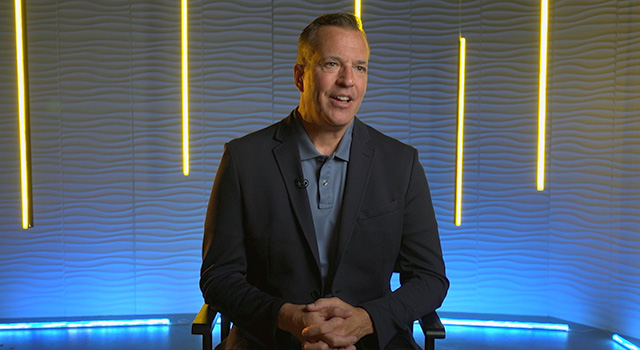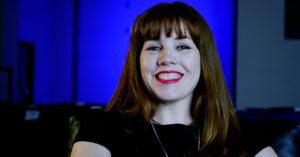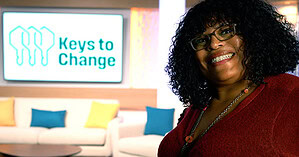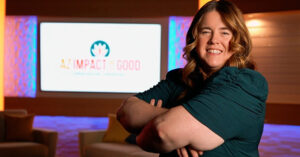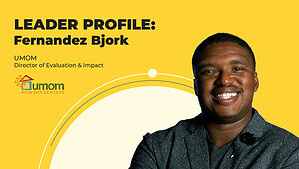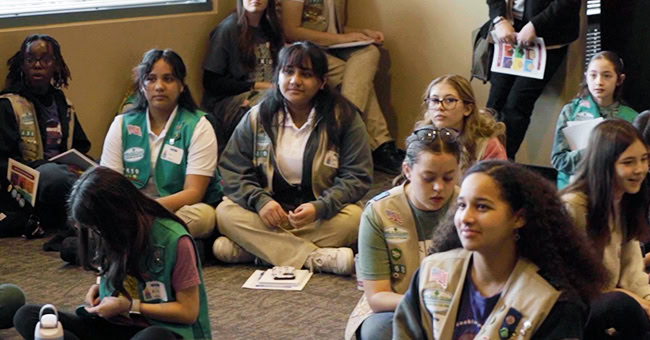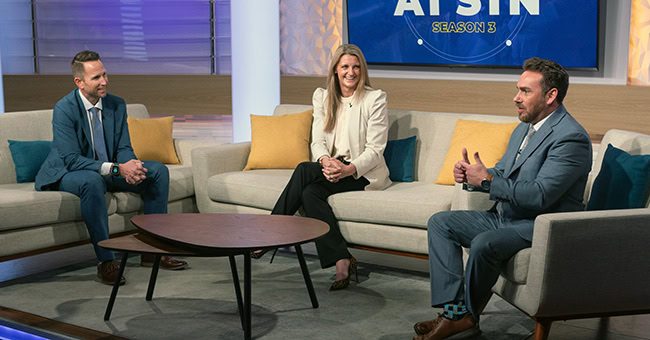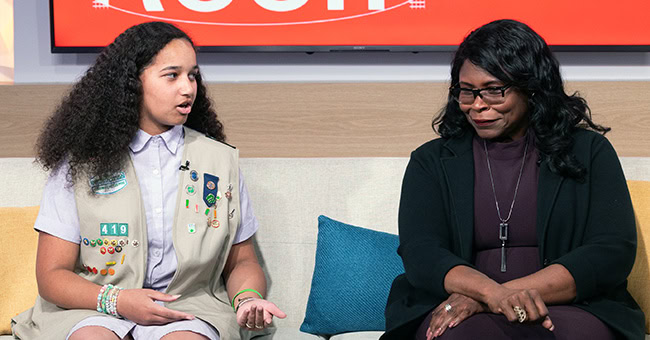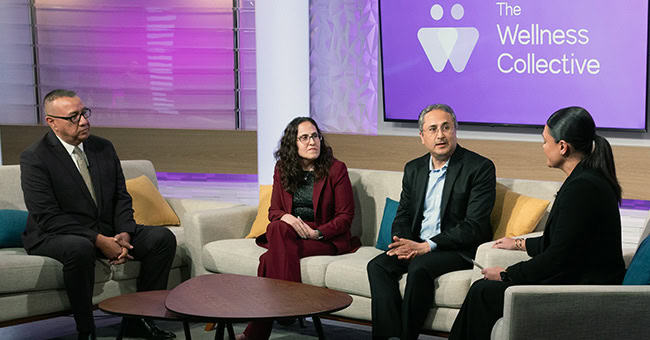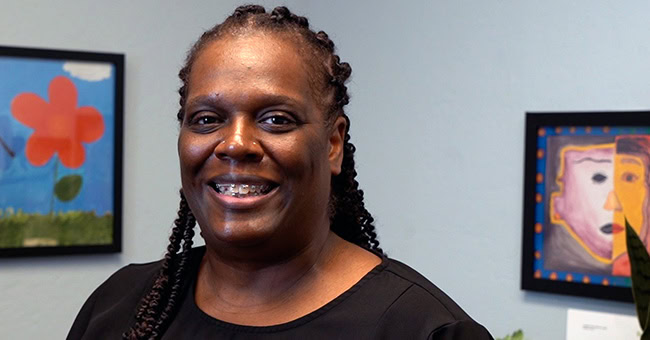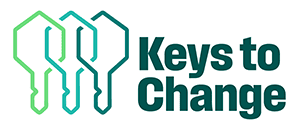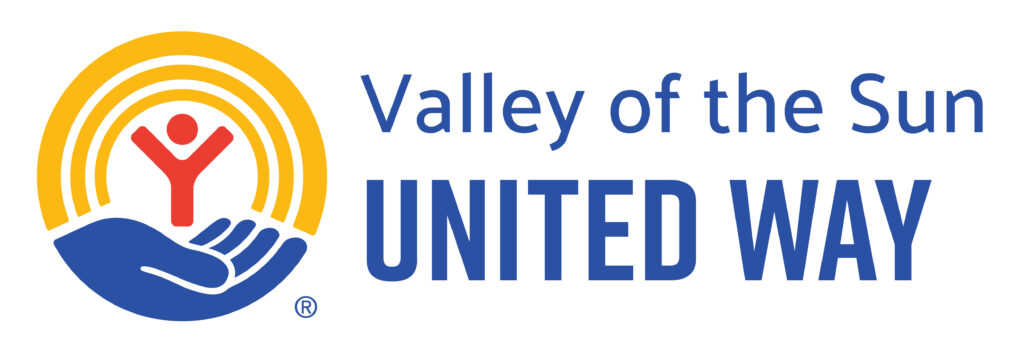Rob Podlogar grew up in the suburbs of Cleveland, Ohio during the 1970s. He realized at an early age that he was gay, but at that time being openly gay was not widely accepted in most communities.
In college, Podlogar struggled with the reality of his identity and how he would be perceived by those close to him for being gay. Fortunately, he was able to find a chosen family within his own community, helping him understand what trust and belonging meant for him.
After college, Podlogar spent a little over two decades working in the banking world. Eventually, he found his way into the nonprofit world. Podlogar realized that if he could work through his own struggles as a gay man, perhaps he could find a way to help others facing different challenges or maybe similar challenges.
Earlier this year, Podlogar became the new CEO at Candelen, an organization focused on early childhood development for ages 0 to 5, as well as providing resources and training for the caretakers of youth in Arizona.
Web exclusive extended interview below:
STN:
Where are you from, and what was your childhood like?
Rob Podlogar:
I grew up in the suburbs of Cleveland, Ohio, I had two older brothers who were not very nice to me when we were growing up, they liked to use me as a punching bag. We moved to the suburbs when I was in fourth grade, and I stayed there until I left for college. I went to a small university in Ohio after high school. After college I entered the financial services industry and worked as a banker for about 25 years, moving back and forth between Columbus and Dallas, Texas. In the 90s, due to a bank merger, I found myself in Phoenix for a while before returning to Columbus. Around 2011, I made the transition to the nonprofit sector.
STN:
Talk about some of the things you had to endure while you were growing up and what eventually led you to work in the nonprofit sector.
RP:
I’ve come to realize that every experience shapes an individual at their core. Growing up, I knew I was gay from a very early age. However, in those times, being openly gay was not widely accepted by most people. I faced bullying from my close friends, I internalized the trauma and it left me questioning why I was treated that way. As a first-generation student, my father made it very clear that education was the path I was expected to pursue, so when it was time for me to go off to college that is what I did.
I told my guidance counselor in high school that I wanted to go to a school where could start over again. I deliberately chose a college as far away as possible in Ohio, a place where no one from my high school had attended in years. At the university, I began making friends and forming relationships. However, even during college, I grappled with the internal struggle of accepting my identity as a gay man. The fear of AIDS, particularly during the 1980s when it was emerging, added another layer of anxiety to that period of my life.
While I was in college I attempted suicide. The internal struggles I was dealing with became overwhelming, and I did not think I could cope with how my identity would be perceived externally. Fortunately, like many in my community, I found solace in a new chosen family connecting with others who shared similar experiences and I began the journey of living my life authentically.
As I look back on my journey, I think it was when I entered the nonprofit sector that I truly understood the challenges I faced and recognized that many others deal with similar obstacles regularly, whether it is based on the color of their skin, economic status, or other any other factors. I eventually came to the realization that if I could navigate my own challenges, I wanted to be able to help people work through whatever struggles they may be facing.
Everyone’s life is unique, and I don’t claim that my experiences are the same as what others are going through or have gone through. However, I recognize the privilege I have as a white male. In my current work within the nonprofit sector, I focus on setting the table for others, being present to understand what individuals need for success.
Recently, my husband and I went out for tacos at our usual Sunday morning spot. I saw two ladies in front of us, both wearing rings, and I said to my husband, “I think they’re part of our community.” He agreed and said how amazing would it have been for us to be openly married and happy at their age. It struck me how different their experience must be as compared to my own struggles in my early twenties. That’s one of the reasons why I’m doing what I do now.
STN:
As a society, there have been some strides made towards equality for the LGBTQI+ community, but there is still a lot of work left to be done. What are some things that you would like to see happen?
RP:
When I start a conversation with someone new, I make it a point to mention my husband within the first 30 seconds. Even with the legalization of marriage, people often assume, when they see a ring, that I have a wife. I want to eliminate any potential awkwardness because I understand that people are usually just trying to engage in conversation. It’s not about making it the sole focus, but instead giving them a glimpse into who I am, where I live, what I do, and what matters to me. We are pawns right now with people trying to demonize members of our transgender community by attempting to vilify drag shows. I can go through a laundry list of offenses the Catholic Church has committed, that are more impactful than drag queens’ storytelling or transgender individuals trying to live their life.
While I may not fully understand the experience of being transgender, I have friends who are, and through conversations with them, I’ve gained insight. My commitment is to do whatever I can to improve their lives and support them in living their lives authentically. Although, when people claim to be allies of my community and then they speak about political and legislative issues that will have a negative impact the LBGTQI+ community, I feel like I have to correct them. You cannot vote one way on certain issues without impacting me and my community, while at the same time claim to be our ally.
STN:
Tell us about Candelen and the work you all do there.
RP:
I am thrilled to be one of the new people at Candelen. I joined the team about three months ago.
Candelen has been around for about 47 years, focusing on early childhood development, specifically from zero to five years old. Our goal is to support caregivers, whether parents, relatives, neighbors, or friends, who play a role in a child’s life and contribute to their development.
We recognize that some children attend daycare centers, while others are cared for at home or by someone in their community. Our aim is to provide programming and educational resources for these caregivers to aid in the cognitive development of a child’s brain.
Looking back on my own childhood in the 70s in Cleveland, our learning center was often the street, playing with other kids. We left the house in the morning and we didn’t come back until it was time for dinner. However, today’s reality is much different because both parents in the family are working and often times they are working full time. The kids in those families need specific attention so they have the best chance at becoming successful even though they may not have the luxury of having their parents around when they are not in school. Our organization works with trained professionals in the early childhood development field.
STN:
There are a lot of other businesses and organizations that focus on early childhood development, what makes Candelen different from the other companies in your focus area?
RP:
Our focus is on a specific demographic, those families who do not enroll their children in daycare centers but instead opt for them to stay at home or be cared for by family, friends, or neighbors. This is a large segment of our population today. Some adults prefer their children to be with individuals they are already acquainted with. I know that from conversations with others in our community, that’s really our sweet spot.
We do a lot of work and have a lot of funding through First Things First, it is a great partnership and I’m looking for ways we can take some of our core work, expand it, and be able to grow even larger.
STN:
Talk about the importance of collaboration within the community and what you look for in community partnerships to help grow Candelen and its mission in the community.
RP:
Collaboration is crucial, especially considering the profound impact on families in the post-COVID era. The financial, mental health, and housing challenges families face have become more apparent. The rise in rent and mortgage rates, among other factors, has brought to light the interconnectedness of various issues. It’s not just about housing or healthcare or education, it’s the intersectionality of these factors.
As we communicate the work we do, it’s essential to emphasize that childcare is also a component of workforce development. Parents and adults in families can’t fully participate in the workforce if they don’t have suitable childcare options. Improving this aspect is not just about economic growth for Maricopa County, Phoenix, or Arizona; it’s about creating an environment where parents feel secure leaving their children, allowing them to work and provide for their families.
Recognizing the interconnectedness of these issues is crucial for Arizona’s growth. To attract companies and foster economic development, we must address childcare and family support, ensuring the success of both families and the state.
For me personally, I am actively working to establish both my presence and the organization’s presence in this space. Leadership changes provide opportune moments to build partnerships – collaborating with various entities such as organizations, foundations, family foundations, and corporations. I am all ears to potential collaboration opportunities, and while my team is eager to move quickly, I recognize the importance of a deliberate approach, testing, piloting, and implementing ideas with care.


